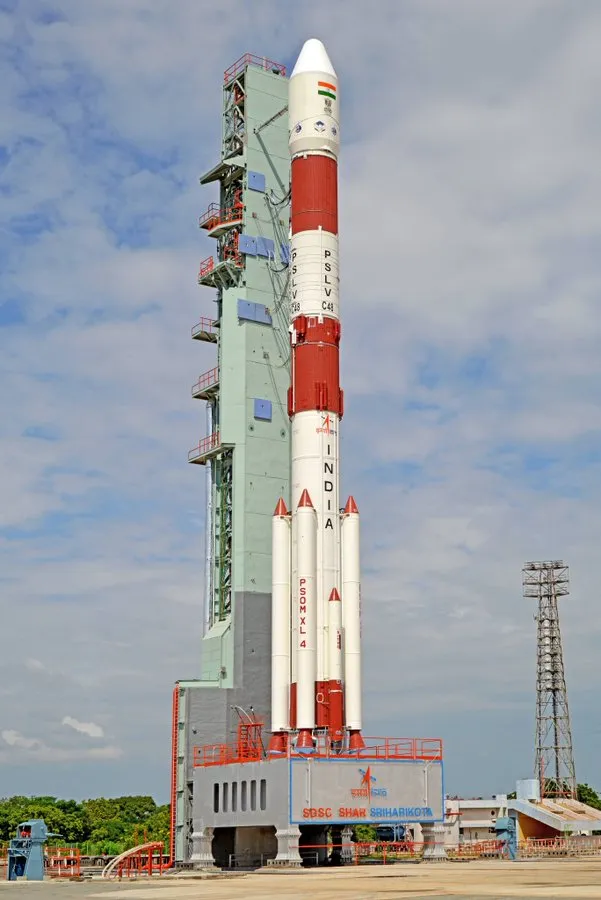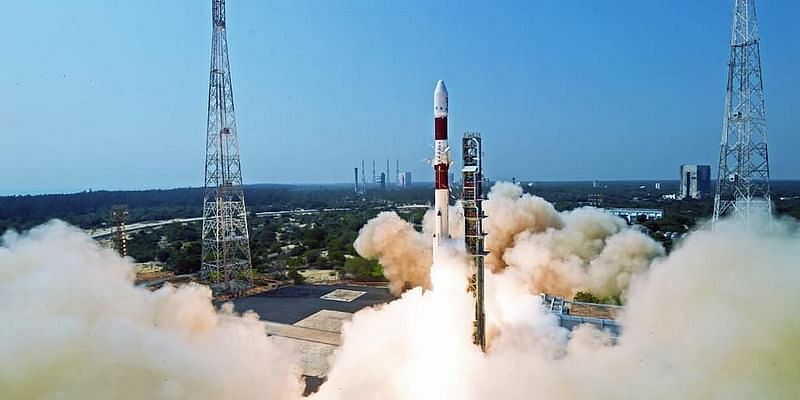ISRO’s commercial arm NewSpace India Limited (NSIL) on Friday said it was looking at investing approximately Rs 10,000 crore over the next five years and a manpower requirement of 300 people as it plans to scale up operations.

[ Image Credit: ISRO Official Twitter]
NSIL, incorporated as a wholly government owned Central Public Sector Enterprise (CPSE) with a paid-up capital of Rs 10 crore on March 6, 2019, would raise Rs 2,000 crore a year through a mix of equity and debt, Chairman and Managing Director G Narayanan told reporters here.
The company, under the Department of Space (Dos), launched its first dedicated commercial mission on February 28, orbiting Brazilian satellite Amazonia-1 from Sriharikota spaceport of the city-headquartered Indian Space Research Organisation (ISRO).
“We expect an investment of approximately Rs 2,000 crore per year starting next year or year after. That is the kind of investment we are seeking to do, and our resources, manpower…we are targeting a requirement of approximately 300 people in about 5 years from now,” Narayanan said in response to a question.
Noting that the NSIL has an authorised capital of Rs 100 crore, he said the 2021-22 union budget had allocated Rs 700 crore to the company.
“..how it will be taken into the company is being worked out…it may happen by next financial year,” the official added.
NSIL Director Technical and Strategy Radhakrishanan D said the company clocked a revenue of over Rs 300 crore in its first year of operation and it was expected to be around Rs 400 crore in 2020-21.
“This basically means in the years to come our target is to see how best we keep increasing….but I must admit that we are in a very nascent stage of operation today…,” he said.
Mandate enhanced
Narayanan said NSIL’s initial mandate was to take over the production and operation of ISRO’s launch vehicles from ISRO and it was allowed to productionise and market other space-based services as well. The company started its activities and made good progress in its first year of operations.
Taking note of all relevant aspects and the growth in the space sector both nationally and globally, the Centre as part of the space sector reforms process had during June 2020 enhanced the mandate of NSIL, he said.
As part of the reforms, NSIL has been mandated to own and operate capital-intensive space assets such as satellites and launch vehicles and to provide end-to-end services on a commercial basis, he said.
This will relieve premier research teams (of ISRO) from routine activities, facilitating them to focus on advanced research and development, he added.
The new mandate also envisages a paradigm shift in the mode of provisioning space based services from the current supply driven model to a demand driven model, the company officials said.
As a first step, NSIL has initiated discussions with users regarding communication satellite capacities and shortly it will ‘finalise the requirements for new satellites in consultation with various users and start procuring, owning, launching and providing services, primarily in the communication sector, the CMD said.
“We are also in an advanced stage of discussions with DoS to take ownership of two new communication satellites,” he said, adding further discussions were progressing.
In addition, NSIL has taken steps to manufacture the entire Polar Satellite Launch Vehicle (PSLV) through domestic industries, and towards this, a Request For Proposal (RFP) for identifying a partner has already been issued, he added.
Responding to a question on the two communications satellites, Radhakrishanan said the first would be mainly for Direct-To-Home services and the second for broadband purposes.
Consultancy services
In response to a question, the officials said the company was in talks with the DoS to acquire ISROs remote sensing and communication satellites fleet.
NSIL, leveraging India’s strength in the space sector, is providing and will continue to provide consultancy services in selected areas, depending on customer needs, Narayanan said.
It has also undertaken transfer of identified technologies from ISRO to Indian industries to enable them scale up their technology level and compete in their relevant fields globally.
“We have so far in our two years of existence already executed launch services spread over 4 PSLV missions for 45 auxiliary customer satellites and the recent one primary satellite for INPE-Brazil,” he added.
The company currently has four more dedicated launch service contracts, which will be executed in the coming two to three years, Radhakrishanan said without sharing details.










